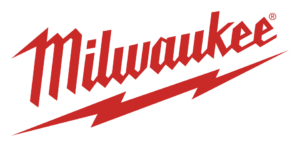By Dave Schwallier, Lift Consulting, LLC
In the dynamic and complex realm of the construction industry, success hinges not only on technical expertise, efficient processes, and adequate labor but also on the intangible aspects that guide organizational behavior and decision-making. Organizational culture, often referred to as the collective personality of a company, plays a paramount role in shaping the construction industry’s trajectory. This article explores the multifaceted significance of organizational culture in the construction sector, delving into its impact on productivity, safety, innovation, employee engagement, and long-term success.
Over the years, some have said that culture is just a buzzword and a fad that won’t be such a focus a few years down the road. But here we are—almost 25 years after Google started putting ping-pong tables, electric scooters, and free food in their offices, promoting their “startup culture,” … and organizations are still striving to develop a healthy, attractive culture and maintain it. The truth is that because culture is ever-changing and involves so many aspects of what a company truly is, it is and should always be an area of focus.

Dave Schwallier
Fostering a Productive Work Environment
Organizational culture serves as the foundation upon which a productive work environment is built. A positive culture can significantly impact efficiency in the construction industry, where project timelines are tight, and resources are finite. A culture that promotes open communication, collaboration, and accountability can reduce silos, streamline decision-making processes, and encourage employees to work cohesively towards shared goals. Employees who feel connected and motivated are more likely to invest their energy and skills into their tasks, leading to improved project outcomes.
"Employees who feel connected and motivated are more likely to invest their energy and skills into their tasks, leading to improved project outcomes."
When organizations are unproductive, it is often a result of communication lapses. Sometimes it’s a lack of clarity, and assumptions are made. The outcomes are mistakes, projects over budget, completing the same work twice, etc. Other times it’s an avoidance of conflict, fear of providing feedback, or speaking up when someone sees something wrong. This produces a lack of trust and sometimes residual resentment, in addition to already described outcomes. For example, if someone sees an error and doesn’t speak up about it because they fear the ramifications from the person they would tell (or tell on,) this can cause significant problems… yet it happens all the time. Why? It’s from a lack of trust and a fear of conflict.
Most organizations tend to spend less time on effective communication and building trust (amongst all staff). Research shows that construction and contractor organizations tend to do it even less.
Enhancing Safety Practices
Safety is paramount in construction, an industry fraught with potential hazards. A robust organizational culture that prioritizes safety can create a workforce deeply committed to adhering to safety protocols. When employees believe that their well-being is valued and that safety is non-negotiable, they are more likely to take personal responsibility for their actions, remain vigilant, and actively contribute to maintaining a safe work environment. This culture of safety not only reduces accidents and injuries but also mitigates legal and financial risks for construction companies.
Improving safety comes with training. But it also comes with clear expectations and accountability. If employees are used to “letting this slide,” it’s not necessarily due to a lack of safety training. It’s an avoidance of leaders from inspecting what they expect and ensuring behavior is changed when expectations aren’t met.
Cultivating Innovation
Innovation is a driving force behind growth and competitive advantage. That said, depending on their role, we certainly don’t want some staff members to innovate. Instead, we want them to follow the process and protocol. A progressive organizational culture in the construction industry encourages select employees to think outside the box, propose novel solutions, and challenge traditional methods. When risk-taking and experimentation (amongst these select team members) are encouraged, employees are empowered to develop innovative approaches to complex problems. An organization that embraces innovation adapts to changing industry trends, adopts advanced technologies, and remains at the forefront of construction practices.
Although navigating or implementing innovative ideas should be left to those who can safely assess risk and implement them, we should most certainly be seeking to accept some creative ideas from others. A project estimator could have a million-dollar idea for a new technology or process to assess costs more accurately!
Boosting Employee Engagement and Retention
High turnover rates can be detrimental to construction projects, leading to disruptions, increased costs, and loss of institutional knowledge. A solid organizational culture plays a pivotal role in employee engagement and retention. When employees feel a sense of belonging, job satisfaction, and alignment with the company’s values, they are more likely to stay committed to their roles. A culture that promotes professional growth recognizes achievements, and offers opportunities for advancement create a loyal and motivated workforce.
With the challenging labor market, we live in (and will likely continue to live in), this is more critical now than ever! Some organizations focus their attention on compensation and benefits, including sign-on or stay bonuses. However, ignoring what organically keeps employees engaged and retained often means that they’ll jump ship as soon as they are offered higher compensation or better benefits. Compensation may draw people in, but it likely won’t keep them!
"When employees feel a sense of belonging, job satisfaction, and alignment with the company’s values, they are more likely to stay committed to their roles."
Enabling Effective Change Management
The construction industry is not immune to changes in project scope, technology, or regulations. We’ve certainly seen a significant amount of change through the COVID-19 pandemic, including supply chain delays, cost increases, labor shortages, and more. An adaptable organizational culture is crucial for effective change management. When employees are accustomed to a culture that values flexibility and continuous learning, they are more open to embracing changes rather than resisting them. An organization with a culture of resilience can navigate challenges more effectively, ensuring that changes are implemented smoothly and with minimal disruption.
Effective change management can’t be taught in training or an online class. It’s something that consistently takes practice. We can have the change process down, but if we can’t effectively communicate with our cross-function peers and our teams, change initiatives are often unsuccessful.
Building Strong Client Relationships
Successful construction projects rely on strong client relationships built on trust, clear communication, and consistent delivery. An organizational culture that emphasizes client satisfaction as a top priority can set a construction company apart in a competitive market. When employees are aligned with the company’s commitment to excellence and client-centric values, they go the extra mile to understand and meet client expectations. This, in turn, leads to positive word-of-mouth referrals and repeat business, contributing to long-term success.
This goes back to clear expectations and accountability. Setting the right expectations with our customers and then honoring those commitments. We can’t be perfect, however. Sometimes we must correct our mistakes, learn from them, and do our best to avoid repeating them twice. We’ve got to be willing to hold ourselves and others in our organizations accountable, even if our clients aren’t going to do so.
Nurturing Leadership and Accountability
Leadership is essential at every level of a construction organization, from the executive team to project managers and supervisors. A healthy organizational culture nurtures effective leadership by promoting integrity, accountability, and ethical decision-making. Leaders who embody the company’s values and expectations set a positive example for their teams, fostering an environment of trust and respect. This, in turn, empowers employees to take ownership of their tasks and responsibilities, driving overall project success.
Leaders modeling the proper behavior are critical to a healthy culture. In many organizations, leaders’ actions override their words. This significantly erodes employee trust, and people stop believing what is being shared and promoted or that the decisions being made are the right ones.
Aligning with Industry Needs
The construction industry is experiencing a paradigm shift with the integration of digital technologies, sustainable practices, and a heightened focus on environmental impact. An adaptable organizational culture allows companies to align with these evolving trends. By encouraging continuous learning and staying open to new ideas, construction firms can effectively implement advancements that enhance efficiency, reduce environmental footprints, and meet changing regulations.
We shouldn’t focus so much on beating our competition or other industry firms. We should learn from them. We should identify a different competitive advantage to get a leg up (like teamwork or communication).
The construction industry’s reliance on technical skills and logistical expertise is undeniable, but the role of organizational culture cannot be understated. A well-defined and nurtured culture impacts every facet of construction operations, from productivity and safety to innovation and client relationships. As the industry continues to evolve, construction companies must recognize that a strong organizational culture is the bedrock upon which they can build a thriving, resilient, and forward-looking future. Construction organizations can navigate challenges and seize opportunities confidently by fostering a culture that empowers employees, prioritizes safety, embraces innovation, and promotes collaboration.
This is all easier said than done, of course. It takes planning, effort, and investment of time, resources, and often money, for an organization to enhance its culture. However, if we have the end in mind, we should think about the worth … and not just the cost.
Dave Schwallier
is Director of Consulting, at Lift Consulting with an impressive background in sales and marketing. His passion to help individuals achieve their personal and professional goals has long driven Dave to succeed in his career. His role at LIFT allows him to work closely with c-suite executives to identify their long-term succession planning goals. Dave works closely with them to collaborate and build a plan to effectively achieve their goals. Dave is CEPA certified by the Exit Planning Institute.













